The 2019 ‘Who Are We?’ project took place for the third year at the Tate Modern and brought together academics and artists to explore migration, participation, citizenship and belonging through installations, symposia, and participatory workshops. Academics and artists explored living archives, the power of popular culture and crossing borders; migration, mobility and citizenship; and the politics of cultural policy, language diversity and translation. Throughout these collaborative activities by artists, academics and cultural hubs across the UK – with guest partners and participants from Beirut, Berlin, Casablanca, Dublin, Istanbul and Madrid - the comparative processes of cultural democracy and new models for artistic production and collaborative, socially engaged practice were explored. The project generated a great deal of interest and involved the participation of a large and diverse audience. What follows is an opportunity to explore ways in which academic work on migration, participation, citizenship and belonging might be shared with wider audiences through creative expression. You can reflect on how research, arts, culture, audience participation and education might learn from each other.
Movement and Identity
On 21st May 2019 a symposium on Movement and Identity with OU researchers from the Justice, Borders, Rights Research Stream on Citizenship and Governance explored from various disciplinary and artistic perspectives, issues of migration, citizenship and belonging at Tate Modern. Agnes Czajka, Senior Lecturer in POLIS at the OU and artist Eva Sajovic explored how climate change affects communities in Cuba, and how participatory art can contribute to education and reflection on climate change.
Tendayi Bloom, Lecturer at POLIS, OU, suggests that we need to find new ways of thinking about those who are excluded from citizenship, suggesting that the idea of noncitizenism should be introduced to think about the rights of these groups of people.
Kesi Mahendran, Senior Lecturer in Social Psychology, OU, shares findings from her research on migration, mobility and citizenship. Placing Ourselves began in 2008 and is a cross-European collaborative programme, which examines categories of belonging, integration and citizenship within the European Union context. It aims to inform dialogue between citizens and their governments on vexed questions such as migration and European Union citizenship, where consensus is not easily established. The studies have been conducted in England, Germany, Ireland, Scotland and Sweden and use innovative dialogical techniques within interviews and focus groups. The research uses policy statements, images, news articles and videos which work as stimulus materials to bring citizens into dialogue with the latest policy and discursive governance. These materials relate to the actions of national and supra-national government institutions such as the European Commission.
Performance artist and writer Bojana Janković explores how art can question and challenge notions of displaced identities. She looks at the intersection of artistic practice, citizenship and displaced/immigrant identities. Trigger Warning, an installation by There There, explores how stereotypes about Eastern Europeans, propagated by the media, are turned into fair games. The installation was created for the first edition of Who Are We? in 2017; the games were invigilated by Eastern European immigrants of different backgrounds and nationalities, inviting the audiences to steal jobs, scrounge on benefits and be health tourists in the company of Eastern European 'experts'. Patrolling, a recent digital conversation for performing borders | LIVE, created by Critical Interruptions, considered borders not as exclusive or oppressive, but as potentially emancipatory and progressive, by imagining events taking place on borders of un- and partially recognised countries in Eastern Europe.
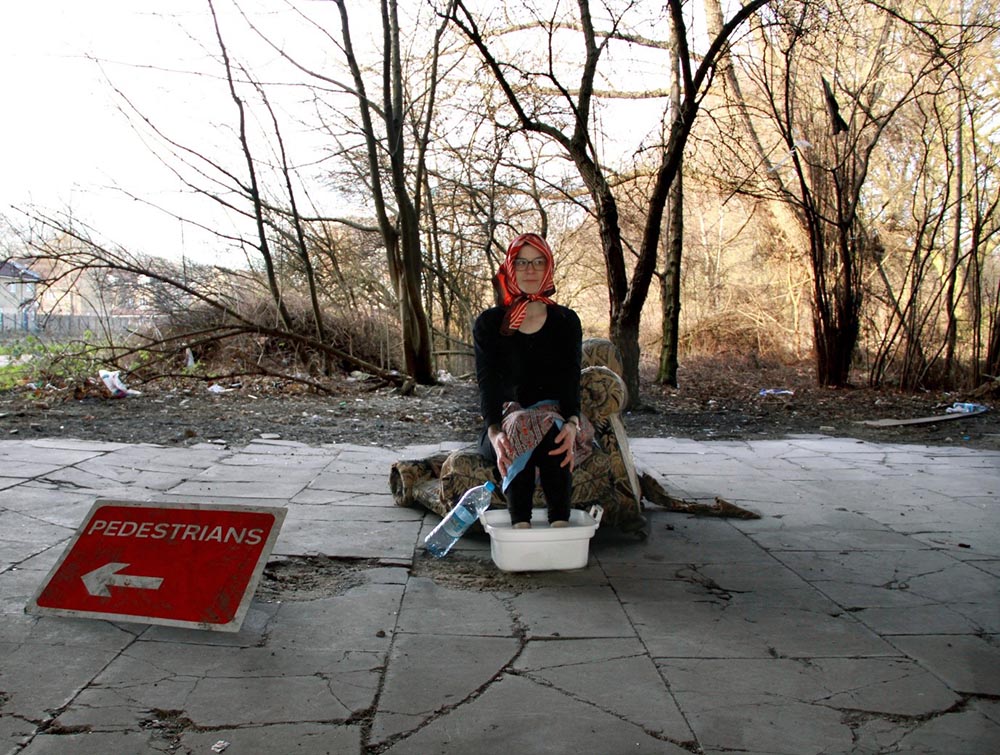 Image by Patricia Venancio Oliveira
Image by Patricia Venancio Oliveira
Through their research projects in the Greek island of Lesvos, Evgenia Iliadou, PhD Candidate in Social Policy and Criminology, OU and Marie Gillespie, Professor of Sociology, OU explore the exclusionary policies directed at refugees, and some ways of envisioning solidarity against these hostile policies.
Evgenia Iliadou argues that, although there is a great emphasis on unauthorised border crossers’ mobility, less attention is given to their coerced immobilisation - the prolonged periods of “stuckedness” and waiting in “in-between” places like Lesvos. After the implementation of the EU-Turkey Statement in 2016 border crossers arriving on Lesvos are not allowed to travel to the Greek mainland. Inside Lesvos border crossers experience multiple forms of social harm, violence and protracted states of precariousness and “stuckedness” due to the maze-like bureaucracy surrounding the registration and asylum procedures, the protracted waiting in degrading, harmful and life-threatening conditions, the intimidation by the police during stop and search practices and the racist violence by local populations. This is a stealthy, quiet and slow form of violence which is normalised and therefore is rendered invisible.
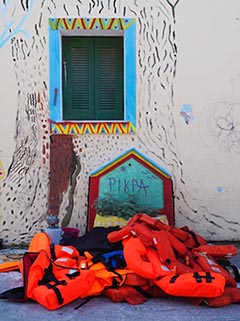
Marie Gillespie explores the issue of solidarity on Lesvos. She argues that solidarity is an idea that inspires people to act together to resolve a problem and her research investigates it as a practice, by asking what does solidarity do, how and why? Refugee support groups, such as Lesvos Solidarity that provide support and shelter to the most vulnerable refugees, draw inspiration, practical organizational advice and know-how from the networks of solidarity and volunteer associations that flourished across Greece since the economic crisis. Projects against privatization, zoning and gentrification by, for example, socially engaged artists are transforming derelict buildings and facilities, creating spaces for advice, health care, shelter for refugees and homeless groups. Such projects support and sustain local communities forced to live under restrictive austerity, high unemployment and lack of public services. Locals on Lesvos continue to provide inspiration and opportunity to give meaning and substance to the spirit of solidarity but they operate independently of the state or municipality and rely on volunteer labour and donations. This is why academics, artists and volunteers worked together with refugees to produce a book called Communities of Solidarity to show through images the story of Pikpa refugee camp. The book helps to raise much needed funds for the Pikpa camp. We invite you to visit the Lesvos Solidarity website to receive a book and make a donation.
In their work Inma Álvarez, Mara Fuertes-Gutiérrez and Carlos Montoro explore the intersection between multilingual spaces and participatory arts. In their installation Soundshapes visitors reacted to audio recordings of sayings and proverbs in various languages by placing a colourful shape on an online grid. They were asked to rate the sounds by how much they liked and knew the languages they heard. This followed the notions that some languages sound weirder than others (World Atlas of Languages Structures) and that languages are not neutral, both shaping people’s responses to them.
Sayings and proverbs embody teachings, values and lessons distilled through time, within and across cultures. Some of them are widely shared, while others reflect specificities of a time and place. The Soundshapes experience culminated in the presentation of a multilingual coat and headwrap that feature 120 sayings in 15 languages, colourfully woven and painted by embroiderers, language teachers and members of the public.
The garments were designed by textile artist Sonia Tuttiett with support from East London Textile Arts at Tate Exchange. They were created during the week-long 2018 edition of the Who are we? exhibition as the participants shared stories related to the featured sayings across languages and cultures. The conversations were captured by visual ethnographer Marcia Chandra and filmographer Sam Bland, and co-produced with support from The Open University and Counterpoints Arts as short films that are available on the Language Acts and Worldmaking YouTube channel. Funding was provided by Language Acts and Worldmaking, a flagship project supported by the Arts and Humanities Research Council's Open World Research Initiative. The project aims to regenerate and transform modern language learning in the UK by foregrounding the power of language to shape how we live and make our worlds. It is led by King's College London in partnership with The Open University, Queen Mary University and the University of Westminster. The focus is on the transformative and pivotal role of language teachers as creative mediators between diverse languages and everyday cultures.

Umut Erel is the lead author of this unit, and you can explore more articles in this unit:
Who are we? Polyglots, poetry and language learning
Who are we? Talking Transformations: Home on the Move. A project of translation, poetry and art.
Who are we? Movement and Immobility: Catalan Political Prisoners and exiles
Who are we? Desire Lines* and Precarious Work in the Arts”
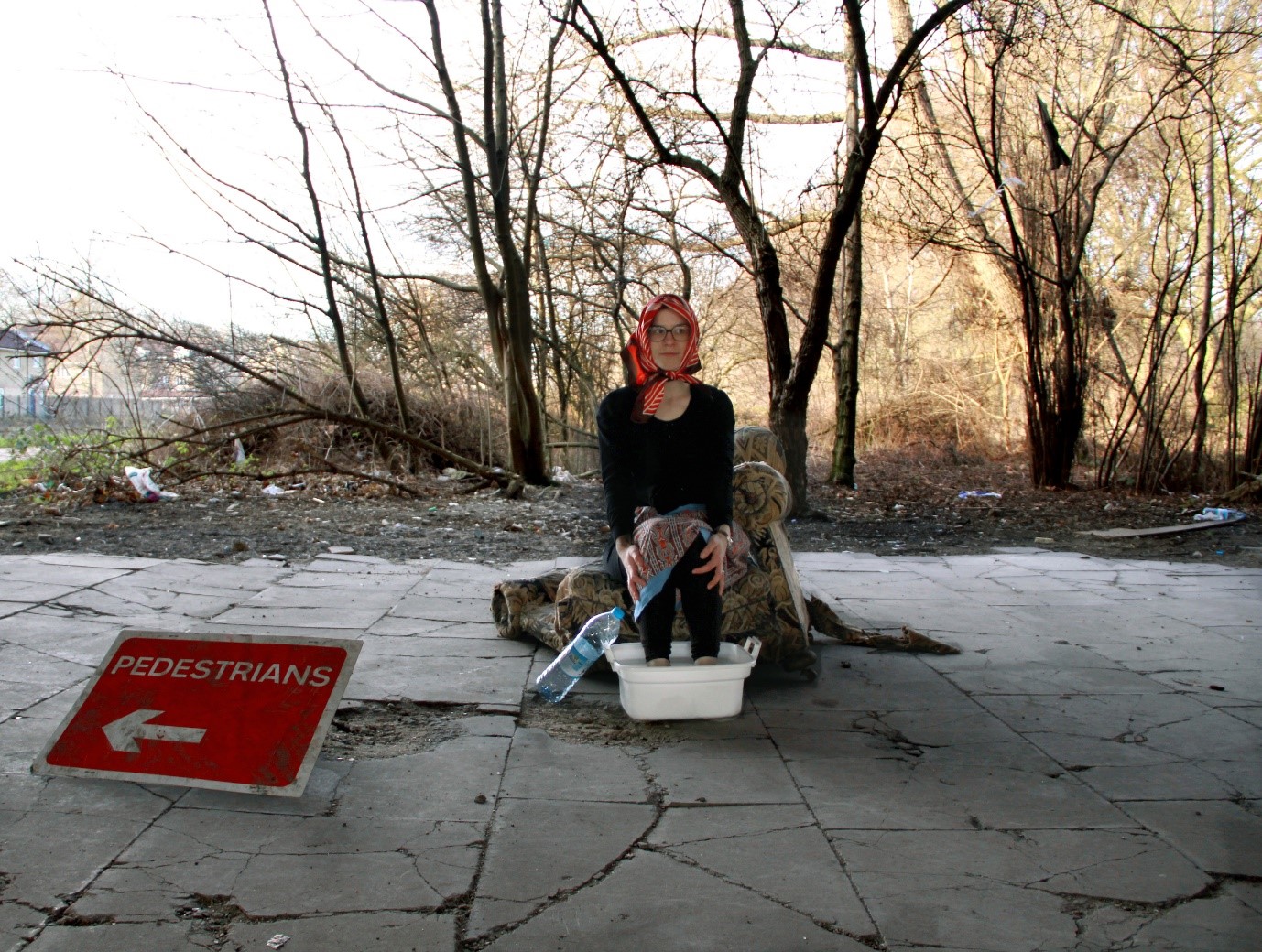

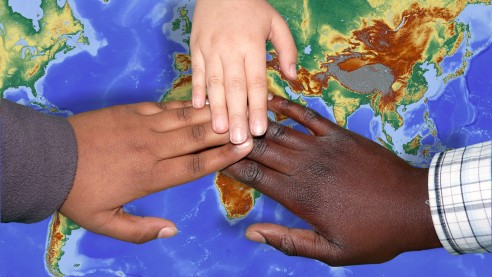
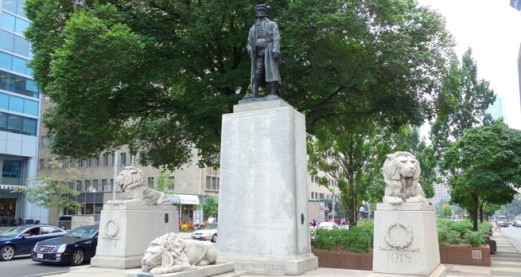






Rate and Review
Rate this article
Review this article
Log into OpenLearn to leave reviews and join in the conversation.
Article reviews